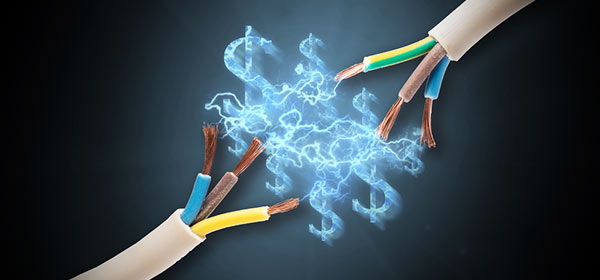Online comparison sites are a boon for consumers who can now easily switch to service providers offering better value for money, especially if they are seeking bargain basement power prices.
Comparing the plethora of energy plans on the market is a chore that would have once taken days or more, but these sites do all of the grunt work for you. Or do they?
Not all comparison sites are equal and some of them make no secret of the fact that they will only recommend energy retailers from a limited list.
Others are more opaque in disclosing their relationships with third parties, leaving you wondering whose side they are really on.
Apart from the government-sponsored sites, comparison companies are in it for money, not love.
Forget any notion that they are providing a community service without strings attached.
They may save you cash, but are they saving you as much as the next comparison site? And are they doing it for the greater benefit of the ‘little person’ or because they are feathering their own nest?
Even the highly-respected Mozo admits in its Financial Services and Credit Guide that while it is independent, it does have ties to financial institutions “with regard to remuneration”. The disclosure statement says it “may receive fees or commissions from the financial institutions, issuers of financial or credit products and third party advice providers that we display on our site”.
It is also paid for sharing market research data with third parties, for hosting financial calculators and other tools on its site, and it collects commissions per click and licensing fees for displaying badges awarded to top providers.
And there is more … it charges fees for referrals to product issuers, when you complete an application for a third party’s product after being referred by Mozo, and also when you are approved for that product, when you click through to a third party’s website and submit your contact details, or request that Mozo pass on your contact details, and for each of your enquiries it passes onto the third party.
What a multi-layered and lucrative business plan. The company doesn’t just get paid for recommending the cheapest product … it owns you as a customer during all the steps you take towards the transition to your new energy retailer.
Another reputable site, Canstar, has a similar business model, as disclosed in its credit guide.
Comparison site disclosures are mandatory under financial regulations, without which we might never know what motivates them to recommend one product or another.
But having said that, it is worth noting that Mozo and Canstar emphasise that the commissions they are paid in no way influence the fees customers are charged by recommended institutions.
None of this insight is meant to detract from the integrity of the free product both organisations provide. In fact, compared to a few other comparison sites they appear to be more ethical.
Over the past few years, the Australian Competition and Consumer Commission (ACCC) has nabbed several sites accused of dodgy practices.
EnergyWatch was fined $2 million for misleading advertising, Compare the Market paid $10,200 in penalties over claims related to health insurance comparisons, and iSelect had court enforceable action taken against it, too.
“In two of those cases, the sites were giving the impression that they compared most or all of the market, when in fact they didn’t,’’ the ACCC said.
The consumer watchdog recommends that energy customers wishing to compare price plans visit a government-sponsored site such as energymadeeasy.gov.au. Victorians can find electricity offers at www.compare.switchon.vic.gov.au. For more information on WA deals, visit www.treasury.wa.gov.au/public-utilities-office, and for NT pricing go to the Utilities Commission.
The ACCC warns that: “Comparator websites may not compare all the offers or products in the market. Check what’s on offer across a range of comparator sites.”
It also advises consumers to identify the site owner, check offer availability, work out the total cost and keep a record of any telephone calls.
And importantly, it recommends that a site’s privacy policy should be checked before you provide your personal details.
“Some operators use your information for purposes other than comparing products. Make sure you are comfortable with how your data will be used,” the watchdog said.
And importantly, the ACCC advises that consumers ensure the company has an Australian financial services licence before they supply personal details to action a switch.
Two years ago, One Big Switch attracted the interest of another watchdog, the Australian Securities and Investments Commission, over its unlicensed operations. Although not a pure comparison site, One Big Switch was forced to fix up its compliance practices before being allowed to continue to obtain cheap, bulk power prices for its huge membership.
Checking out who owns, or has an interest in, an online site that promises to save you money can also be eye-opening. This was the case with One Big Switch, again, when it was revealed that media giants Seven West Media and News Corp bought stakes in the company after its launch.
The moral of the story is, look before you leap to another electricity retailer, otherwise you might trip over a wire.
Would you ever use a comparison site to shop for cheaper electricity? If you have used a site, how much did it save you over a year? What other ideas do you have for saving big bucks on power?
Related articles:
Spotlight on energy comparison sites
Devil in the detail: energy plans
How to cut power bills

